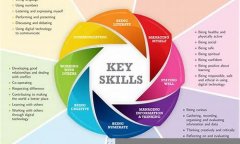Key Skills You Need to Succeed When Working Remotely
Remote work has become increasingly popular in recent years, offering employees flexibility and the ability to work from anywhere in the world. However, working remotely comes with its own set of challenges, and to succeed in a remote environment, you need a specific set of skills. In this article, we’ll explore the key skills required to thrive when working remotely, including time management, communication, self-discipline, and technical proficiency.
Time Management
One of the most important skills to master when working remotely is time management. Without a physical office environment, it’s easy to get distracted or lose track of time. Remote workers must be able to prioritize tasks, set clear goals, and maintain a structured routine. Using tools like calendars, to-do lists, and time-tracking software can help you stay on top of your tasks and meet deadlines efficiently.
Communication Skills
Effective communication is critical in remote work settings. As you won’t have face-to-face interactions, it’s essential to be clear and concise in all forms of communication, whether through emails, video calls, or messaging apps. Being proactive and regularly checking in with team members can help prevent misunderstandings and ensure smooth collaboration.

Self-Discipline
Working remotely requires a high level of self-discipline. Since you’re not under direct supervision, staying focused on tasks can be challenging. Successful remote workers must be able to resist distractions, stay motivated, and create a productive work environment at home. This includes setting clear boundaries between work and personal life.
Technical Proficiency
A strong understanding of technology is essential when working remotely. Familiarity with online collaboration tools like Zoom, Slack, and project management platforms can enhance productivity and communication. Additionally, knowing how to troubleshoot basic technical issues will help you avoid disruptions during work.
Adaptability
Remote work requires adaptability, as you may encounter unexpected challenges such as changes in technology or new team dynamics. Being flexible and open to new ways of working will ensure that you can navigate through these changes smoothly and continue to meet your work objectives.
Conclusion
In conclusion, succeeding in a remote work environment requires mastering several essential skills. Time management, communication, self-discipline, technical proficiency, and adaptability are all key components for success. By honing these skills, remote workers can enjoy a productive and fulfilling career while maintaining a healthy work-life balance.

 企业平台
企业平台 发现评估
发现评估 自动化
自动化 行业解决方案
行业解决方案 业务解决方案
业务解决方案 合作伙伴
合作伙伴 生态联盟
生态联盟 咨询服务
咨询服务 培训服务
培训服务 交流社区
交流社区 客户成功
客户成功 产品文档
产品文档
 公司介绍
公司介绍 新闻列表
新闻列表 联系我们
联系我们 加入我们
加入我们

